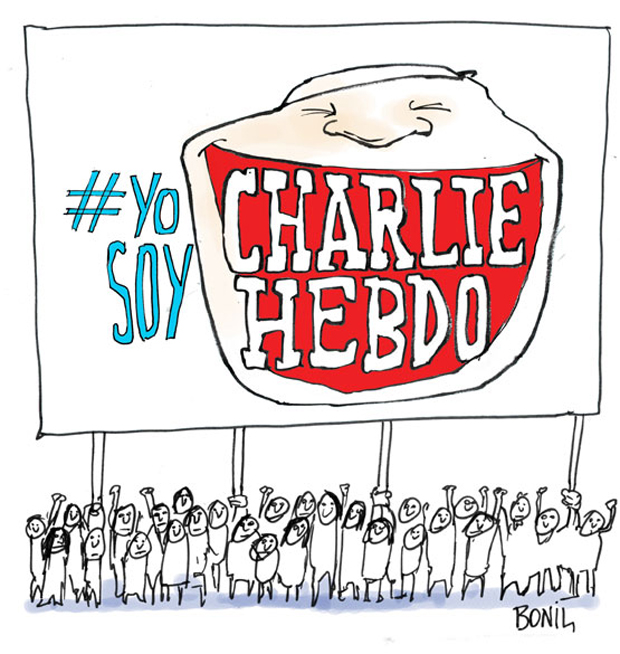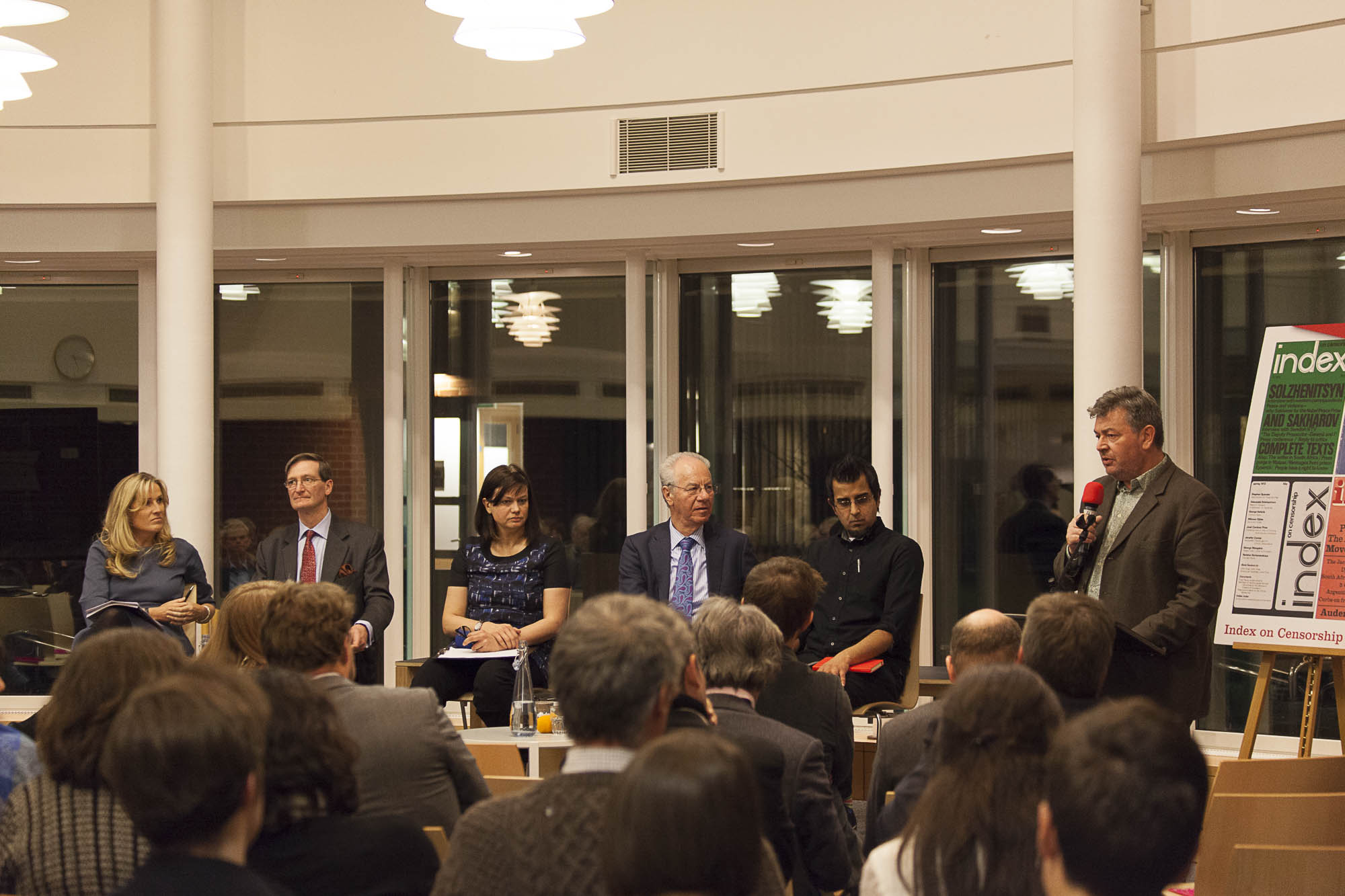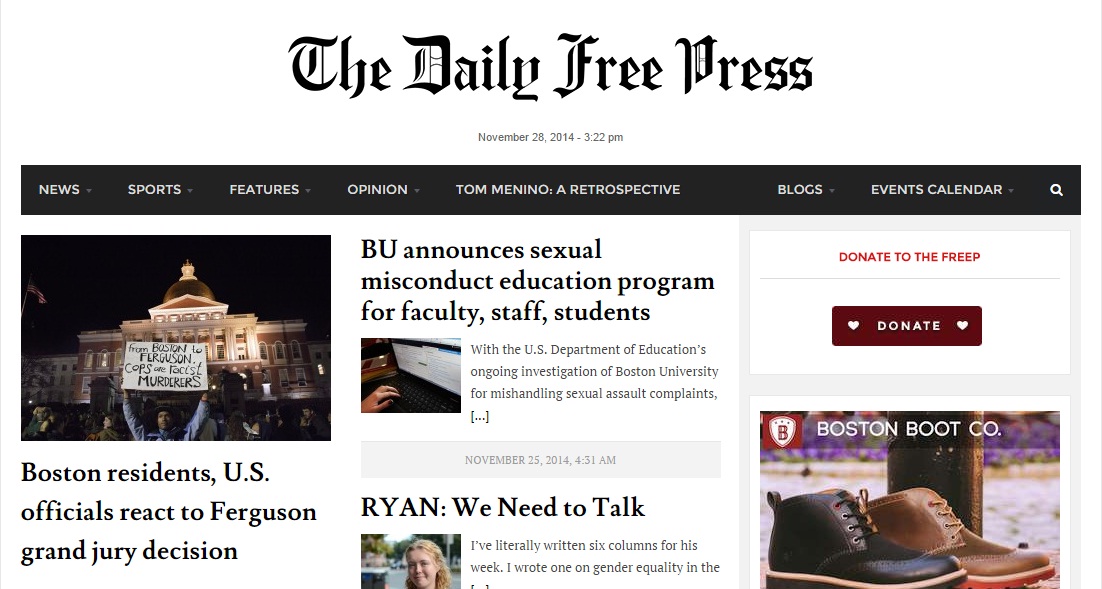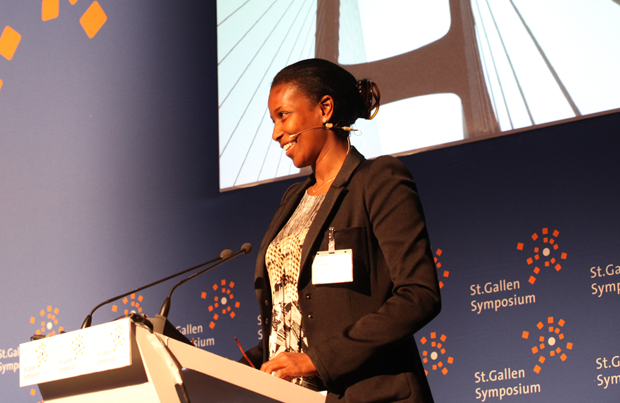The decision by six authors to withdraw from a PEN American Center gala in which Charlie Hebdo will be honoured with an award once again emphasises the dangerous notion that some forms of free expression are more worthy than others of defending


The decision by six authors to withdraw from a PEN American Center gala in which Charlie Hebdo will be honoured with an award once again emphasises the dangerous notion that some forms of free expression are more worthy than others of defending
The organisers of a women’s conference at the University of South Dakota react to attempts to ban a screening of Honor Diaries

Nico Sell is a US-based entrepreneur and activist for online privacy and secure digital communication.

On the day when the four surviving copies of the original 1215 Magna Carta were briefly brought together for the first time, Index on Censorship held a debate to celebrate the launch of the winter issue of the magazine.

Edward Snowden’s lawyer Ben Winzer talks to Index about his client and what the loss of privacy to the secret state means to the future of free expression.

As many campus media struggle to maintain a steady revenue, Index hears from two US university papers about their work and how they finance themselves independently

We have to stop thinking about things happening “on the internet”, when it’s simply part of human interaction for millions

More often than not, the United States’ first amendment forces some real thought and analysis to take place in public life, writes Padraig Reidy.

A Yale student group’s choice to host writer Ayaan Hirsi Ali was met with widespread protest. This is not the only recent example of a free expression dispute at a US campus. Dave Coscia writes

With smartphones, cheap recording equipment, and free access to social media and blogging platforms, journalism has fallen into the hands of the many. This is a good thing. But one question does arise: if we are all journalists now, what happens to the privileges journalists used to claim?
Smears about the media made by US President Donald Trump have obscured a wider problem with press freedom in the United States: namely widespread and low-level animosity that feeds into the everyday working lives of the nation’s journalists, bloggers and media professionals. This study examines documented reports from across the country in the six months leading up to the presidential inauguration and the months after. It clearly shows that threats to US press freedom go well beyond the Oval Office.
“Animosity toward the press comes in many forms. Journalists are targeted in several ways: from social media trolling to harassment by law enforcement to over-the-top public criticism by those in the highest office. The negative atmosphere for journalists is damaging for the public and their right to information,” said Jodie Ginsberg, CEO at Index on Censorship, which documented the cases using an approach undertaken by the organization to monitor press freedom in Europe over the past three years. Learn more.